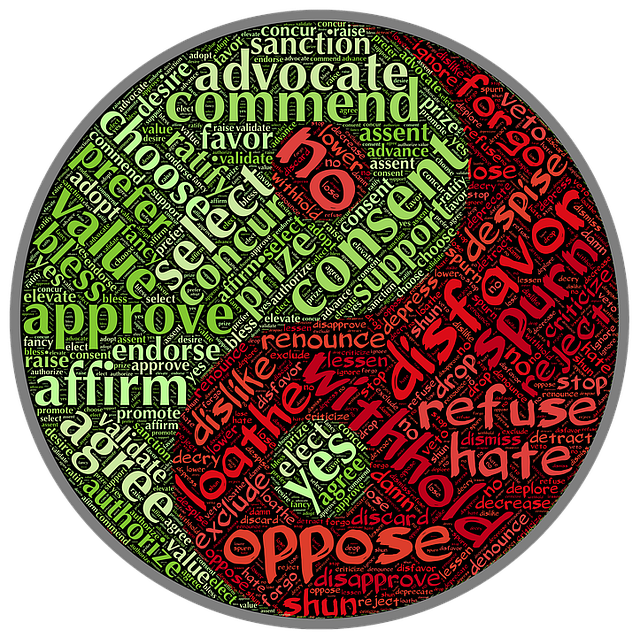In the UK, Translation Services for UK Informed Consent Forms are vital for navigating regulatory compliance and ethical practices, especially in cross-border research involving multilingual participants. Professional translators ensure accurate communication of complex medical and legal terminology in native languages, protecting patient rights and enhancing trust. These services employ linguists with medical and legal expertise to preserve original intent, address cultural nuances, and avoid potential legal issues. With the integration of Artificial Intelligence (AI), these translation services are poised for a transformative future, offering increased efficiency, accuracy, and localization for complex legal and medical documents.
In the intricate landscape of UK healthcare and research regulations, understanding and obtaining valid informed consent forms is paramount. This article explores the crucial aspect of translation services for UK Informed Consent Forms, delving into the significance of accurate documentation in compliance. We navigate the challenges of multilingual consent, highlighting the essential role of professional translators in ensuring legal validity. From best practices to inspiring case studies, this guide offers insights into seamless translation processes, shaping the future with AI and human expertise for regulatory excellence.
- Understanding the Importance of Consent Forms in UK Regulations
- Challenges in Navigating Multilingual Consent Documentation
- The Role of Professional Translation Services
- Ensuring Accuracy and Legal Validity through Expertise
- Best Practices for Translating Informed Consent Forms
- Case Studies: Successful Translations in Healthcare and Research
- Future Trends: AI and Human Translation for Regulatory Compliance
Understanding the Importance of Consent Forms in UK Regulations

In the UK, consent forms are a critical component of regulatory compliance across various sectors. These documents ensure that individuals understand and agree to a procedure, treatment, or data processing—a cornerstone of ethical practices and legal requirements. Accurate translation services for informed consent forms are essential when dealing with multilingual participants or conducting research internationally.
For businesses and organizations operating within the UK, providing clear and accessible consent forms is not just a legal obligation but also fosters trust and ensures participant rights. Professional translation services play a vital role in this process, ensuring that complex medical, scientific, or legal terminology is accurately conveyed in the native language of each participant, thereby facilitating seamless UK regulatory compliance.
Challenges in Navigating Multilingual Consent Documentation

Navigating multilingual consent documentation presents a unique set of challenges, especially in the context of the UK’s stringent regulatory environment. With an increasing number of cross-border clinical trials and diverse patient populations, ensuring that informed consent forms are accurately translated and culturally adapted is paramount. This process goes beyond mere word-for-word translation; it demands a deep understanding of legal terminology and cultural nuances to preserve the integrity of the information conveyed.
Translation services for UK informed consent forms must be highly specialized, involving linguists who possess not only expertise in both source and target languages but also a solid grasp of medical and legal jargon. Inaccurate or inadequate translations could lead to misunderstandings among participants, potentially compromising the validity of research results or even posing ethical risks. Therefore, leveraging professional translation services is essential to ensure regulatory compliance and uphold the highest standards of patient protection.
The Role of Professional Translation Services

In the realm of healthcare and research, ensuring clear communication and understanding is paramount. When dealing with informed consent forms, accuracy in translation becomes a game-changer for UK compliance. Professional translation services play a crucial role here, as they offer expertise beyond simple word substitution. These services employ linguists who understand not just the language, but also the legal and medical nuances involved.
For complex documents like UK informed consent forms, professional translators provide seamless translations that preserve the original intent and meaning. They navigate the labyrinthine requirements of UK regulations, ensuring compliance throughout the process. This is particularly vital when dealing with international participants or diverse patient populations, where clear and culturally appropriate communication can significantly impact the success and ethical soundness of a study or treatment.
Ensuring Accuracy and Legal Validity through Expertise

When it comes to translating consent forms for UK regulatory compliance, accuracy and legal validity are paramount. Trusting the process to professionals who understand both the language and the intricate legal requirements is essential. Expert translation services specialize in navigating the nuances of medical and legal jargon, ensuring that every term is correctly interpreted and applied across languages. This meticulous approach not only guarantees precise communication but also complies with UK regulations, thereby avoiding potential legal pitfalls.
These services employ native-speaking translators who are well-versed in both the source and target languages, along with legal experts who possess a deep understanding of informed consent forms. Their collaborative effort results in translations that are not just word-for-word but contextually appropriate and legally sound. This is particularly crucial for UK Informed Consent Forms, which must adhere to strict standards to protect patient rights and maintain ethical practices.
Best Practices for Translating Informed Consent Forms

When translating informed consent forms for healthcare or research purposes in the UK, precision and clarity are paramount to ensure regulatory compliance. Best practices involve engaging professional translation services with specialized medical or scientific expertise, ensuring they’re familiar with local terminology and legal requirements. These experts can adapt language while preserving the original meaning and intent, crucial for preventing miscommunication that may compromise patient rights and data privacy.
Additionally, it’s essential to consider cultural nuances and any potential ambiguity in the source text. Using inclusive language and avoiding jargon that might be unfamiliar to non-specialists helps enhance comprehension. Regular reviews and quality checks by subject matter experts further guarantee accuracy and consistency across translated forms, which are vital documents in medical settings where every detail counts.
Case Studies: Successful Translations in Healthcare and Research

In recent years, translation services for UK informed consent forms have become increasingly vital, especially in healthcare and research sectors. Case studies highlight successful translations that have streamlined processes, ensured clarity, and promoted seamless regulatory compliance. For instance, a leading pharmaceutical company faced challenges in expanding its clinical trials globally due to language barriers in consent forms. By engaging professional translation services, they were able to translate these forms accurately into multiple languages, facilitating easier recruitment of international participants and expediting the overall research process.
Another compelling case involves a university-led medical research project aimed at rare diseases. The research team, comprising international collaborators, relied on translation services to adapt consent forms for various countries’ legal requirements and cultural nuances. This meticulous translation ensured that participants understood their rights and obligations, fostering trust and ethical practices across diverse regions. These examples underscore the importance of high-quality translation in healthcare and research, where clear communication is paramount for successful outcomes and regulatory adherence.
Future Trends: AI and Human Translation for Regulatory Compliance

The future of translation services for UK informed consent forms looks set to be shaped by artificial intelligence (AI). As regulatory requirements become increasingly complex, AI-powered tools offer a promising solution for efficient and accurate documentation. These advanced systems can handle vast amounts of data, ensuring that consent forms are not only translated but also localized, adapting to cultural nuances across different regions.
By leveraging machine learning algorithms, AI translation services can continuously improve their performance, reducing potential errors and saving time. This technology combines human expertise with automated processes, enabling precise and compliant translations for a wide range of legal and medical documents. Human translators can focus on complex or sensitive content, while AI handles the bulk, ensuring a seamless and consistent user experience across multilingual platforms.
When it comes to navigating the intricate landscape of UK regulations, especially in healthcare and research, professional translation services play a pivotal role. Accurate and legally valid consent forms are essential to ensure compliance and protect participants’ rights. By adopting best practices and leveraging advancements like AI, organizations can streamline the process, ensuring seamless communication across languages. Translation services for UK informed consent forms have evolved to meet these demands, fostering a more inclusive and compliant research environment.
